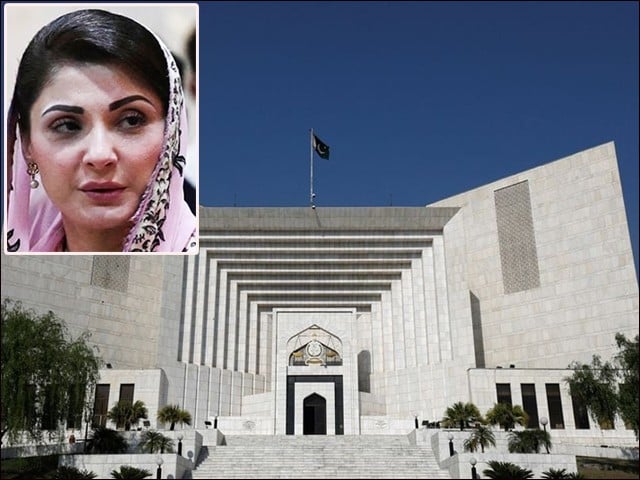Mubashir Nadeem
The recent remarks made by Punjab Chief Minister Maryam Nawaz towards the Supreme Court have sparked heated debates and raised concerns about the implications of such statements on the political landscape of Pakistan. Maryam Nawaz’s public criticism of the Supreme Court’s ruling in favour of the PTI in the reserved seats case has not only surprised many but has also ignited questions about the PML-N’s overall strategy in dealing with the judiciary and the PTI.
In her address, Maryam Nawaz seemed to accuse Supreme Court judges of attempting to bring Imran Khan back to power by what she described as ‘rewriting’ the Constitution. Her direct and confrontational tone suggested that the PML-N was not willing to back down, even implying that judges had ‘sold their consciences.’ This aggressive stance in the face of the court’s decision raises concerns about the PML-N’s plan of action. Particularly noteworthy is the limited support within the PML-N for the banning of the PTI, which could indicate a potential rift within the party’s leadership and a lack of consensus on the party’s strategy.
While it is evident that both Maryam Nawaz and her father, Nawaz Sharif, have faced past unfavourable court decisions, it is essential to question the motives behind the PML-N’s recent approach. Despite the historic injustices endured by the Sharif family in the judicial system, it is noteworthy that they have been the beneficiaries of significant court rulings in recent times, which seemed to have resolved their legal challenges. The sudden shift in strategy and public criticism of the judiciary raises valid concerns about the potential consequences, particularly in terms of the judiciary’s independence and the rule of law. This could lead to a further erosion of public trust in the judiciary and a destabilization of the democratic process.
Pl watch the video and subscribe to the YouTube channel of republicpolicy.com
One might wonder whether the PML-N’s “Plan B” involves provoking the judiciary through open threats despite lacking substantial reasons to do so. The judiciary, which has demonstrated a growing commitment to safeguarding its independence, is unlikely to take such remarks lightly. Additionally, the Supreme Court decisions were held legally binding under Article 189, and any act of defiance could be viewed as contempt of court. It’s crucial for the PML-N to exercise utmost caution and prudence in navigating their interactions with the judiciary, especially considering the escalating concerns about potential interference from state institutions.
Concludingly, Maryam Nawaz’s controversial remarks reflect not only a shift in the PML-N’s stance toward the judiciary but also raise pertinent questions about the party’s strategic objectives. As the political landscape continues to evolve, it’s imperative for all stakeholders to uphold the principles of respect for judicial independence and the rule of law. The potential impact of the PML-N’s strategy on the stability and integrity of Pakistan’s democratic institutions cannot be overstated, and it’s crucial for all parties to act in the best interest of the nation.
















